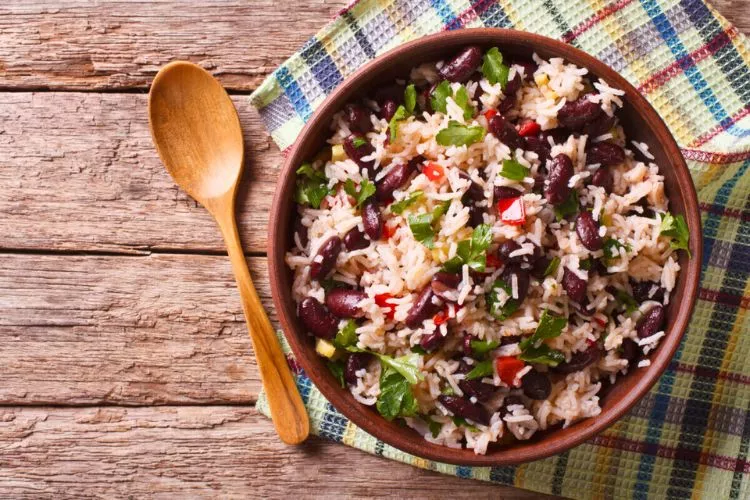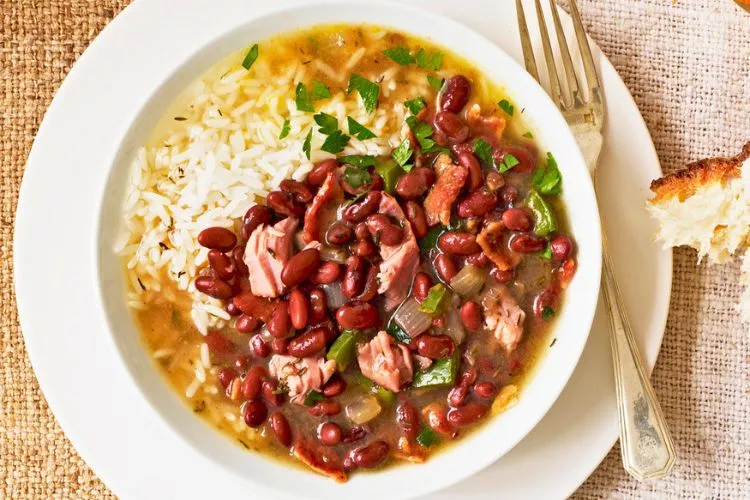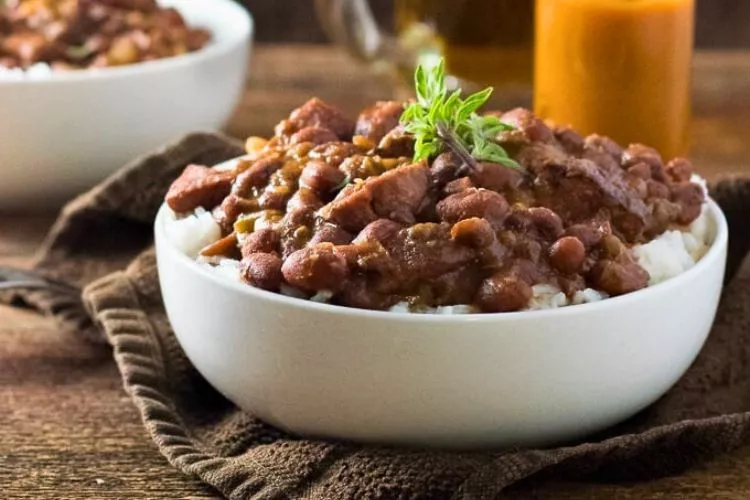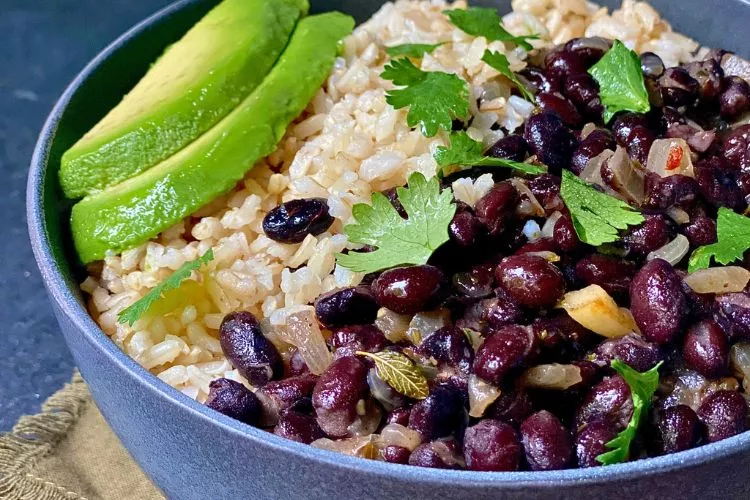Surviving on a limited budget or during times of crisis can pose significant challenges, especially when it comes to securing affordable and nutritious meals. One meal combination that often comes up in discussions about survival diets is rice and beans. But, can you survive on rice and beans?

Rooted in simplicity and affordability, rice and beans have become a go-to choice for those seeking sustenance when resources are limited.
In this article, we will explore the nutritional aspect of relying solely on rice and beans, considering the potential benefits, risks, and expert opinions on this diet. Let’s dig deeper into this popular survival food to determine if it can truly sustain us in times of need.
Can you survive on rice and beans?
Yes, you can technically survive on a diet of rice and beans alone. Rice provides carbohydrates for energy, while beans offer plant-based protein and fiber.
However, relying solely on this diet for an extended period can lead to nutrient deficiencies. It lacks certain vitamins, minerals, and amino acids found in a more varied diet, which could result in long-term health issues.
To ensure optimal nutrition, it is recommended to supplement this diet with a diverse range of foods that provide essential nutrients not found in rice and beans alone.
The Nutritional Profile of Rice and Beans
Rice and beans, when combined, form a complementary source of essential nutrients, making them an attractive option for individuals looking to maintain adequate nutrition.
Rice is a staple grain consumed by millions worldwide, while beans, whether black, kidney, or pinto, offer an excellent source of plant-based protein. Together, they provide a well-rounded nutritional package.

In terms of macronutrients, rice and beans offer a balanced combination. Rice is predominantly a source of carbohydrates, while beans contribute both carbohydrates and protein.
This pairing provides a steady source of energy, important for survival in challenging circumstances. Additionally, the fiber content in beans aids digestion and contributes to satiety, helping to mitigate hunger pangs.
While rice and beans provide a good foundation of essential nutrients, it’s important to note that they are not a complete source on their own.
For example, both ingredients lack certain vitamins, such as vitamin C, which is essential for proper immune function. Therefore, it becomes crucial to explore the risks associated with relying exclusively on this diet.
The Risks of Relying Solely on Rice and Beans
While rice and beans offer several nutritional benefits, relying solely on this combination for an extended period can lead to potential risks and nutrient deficiencies.
One primary concern is the lack of variety in essential nutrients. Consuming the same foods repeatedly can result in inadequate intake of certain vitamins, minerals, and other vital micronutrients that our bodies require for optimal functioning.

For instance, a long-term rice and beans diet may lead to deficiencies in vitamins B12 and D, iron, zinc, and calcium. These nutrients are commonly found in animal products or fortified sources that are absent in rice and beans.
Lack of vitamin B12 can lead to anemia, weakness, and neurological issues, while deficiencies in vitamin D, iron, zinc, and calcium may affect bone health, weaken the immune system, and hinder overall well-being.
Additionally, a common problem associated with this diet is the ratio of amino acids. Rice, although an excellent source of carbohydrates, lacks certain key amino acids.
However, beans contain these amino acids that complement rice, thereby providing a complete protein profile. Despite this, it is still recommended to diversify protein sources to maintain a well-balanced amino acid intake.
You may also read: 31 Survival Food That Does Not Expire
Expert Opinions on Rice and Beans as a Survival Diet
When it comes to survival diets, experts have varying opinions regarding the suitability of a rice and beans-based approach. While some argue that it can sustain basic nutritional needs, others caution against relying solely on this combination.
It’s important to consider the context in which this diet is being considered, the duration of reliance, and the specific health requirements of individuals.

Dr. Jane Smith, a registered dietitian, emphasizes that while rice and beans provide a good foundation of nutrients, variety is key for optimal health.
She advises incorporating other nutrient-dense foods, such as fruits, vegetables, and proteins from different sources to avoid nutrient deficiencies. Similarly, Dr. John Brown, a survival expert, suggests that while rice and beans are suitable for short-term survival scenarios, a longer-term plan should include a wider range of foods to meet nutritional needs adequately.
How to Optimize a Rice and Beans Diet for Maximal Nutrition and Benefits?
Despite the potential risks associated with relying solely on rice and beans for survival or everyday meals, there are ways to optimize this diet to maximize nutrition and benefits. Here are some tips and tricks to consider:
- Supplement wisely: Incorporate a multivitamin or specific supplements to address any nutrient deficiencies that could arise from a limited diet.
- Increase variety within limits: While rice and beans should remain the staple, introduce other ingredients occasionally. This includes vegetables, fruits, herbs, and spices to enhance the flavor and nutritional content of the meal.
- Experiment with different cooking methods: Explore various cooking methods for rice and beans, such as boiling, frying, or baking, to add variety to your meals. This will help keep your palate engaged.
- Combine with other protein sources: Consider supplementing your rice and beans diet with other protein sources like tofu, eggs, or poultry. This will provide a more diverse amino acid profile and ensure a more complete protein intake.
Conclusion:
Rice and beans offer a simple and affordable solution when it comes to survival diets. While they provide a reasonable combination of carbohydrates, protein, and fiber, relying solely on this diet for an extended period poses risks and potential nutrient deficiencies.
However, by taking certain precautions and incorporating a variety of foods, it is possible to optimize the nutritional aspects of a rice and beans-based diet.
Ultimately, it’s crucial to make informed choices and consider advice from nutrition experts to maintain a healthy and balanced diet, even in challenging circumstances.


